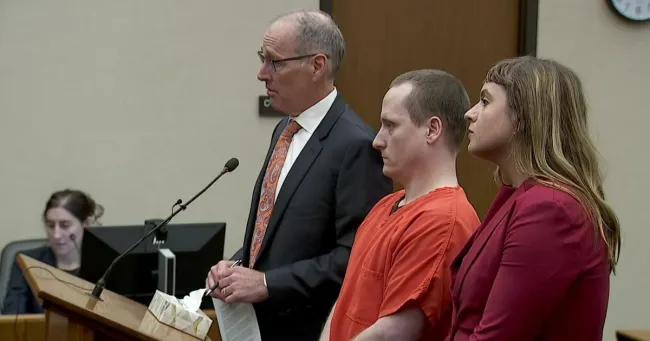Matthew Brenneman Indicted for Killing Ex-Girlfriend in Minnesota, Days After Jail Release for Previous Attack
Another innocent life lost. Another chilling failure by the system meant to protect. Matthew Brenneman, the man who allegedly butchered his ex-girlfriend just days after being released from jail for attacking her, is now facing an indictment. But that’s little comfort to Danicka Bergeson’s grieving family—justice has come too late to save her.
This isn’t a mere case of domestic violence; it’s a harrowing testament to a broken justice system that allowed an abuser to walk free, ignoring the very real risks to an innocent life. This is a tragic failure where a victim’s life was deemed expendable, her safety secondary to the rights of an aggressor. In the aftermath of Bergeson’s death, her family is left with shattered hearts and unanswered questions: Why wasn’t he stopped when they had the chance?
The details of Danicka’s death are as horrifying as they are haunting. The 29-year-old former Army medic, a woman who had already faced the brutalities of war and survived, was found lifeless in her apartment in a state of unspeakable horror. Her body was wrapped in blankets, left to decompose in a scene that was aggressively scrubbed clean of evidence—bleach had been poured over everything, a desperate attempt by Brenneman to cover his tracks. But the stench of his crime could never be erased.
Meanwhile, Brenneman, in a bizarre twist, was found in the bathroom of the apartment, allegedly having ingested bleach himself. Some might call it a cry for help, but it feels more like a feeble act of self-preservation, a man caught in the act trying to avoid the consequences of his actions. Was it remorse, or just another twisted maneuver to escape his fate?
And the defense? They have the gall to call it a "crime of passion." Let’s be clear—this was no spur-of-the-moment eruption of fury. This was a premeditated act of violence, a brutal assault on a woman who had already experienced the horrors of being manipulated and abused by the man who claimed to love her. And yet, Brenneman’s lawyers are pushing to have the case dropped based on the flimsy argument that the medical examiner couldn’t conclusively determine the exact cause of death. How convenient for them. A missing detail is suddenly the crutch on which to pivot a defense, and a way to undermine the true nature of the crime.
Danicka’s family knew the stakes all too well. They watched the pattern unfold. The abusive behavior. The threats. The manipulation. They raised alarms, warned of the imminent danger, but their cries were drowned out by a system that failed to act. A system that let Brenneman walk free and allowed their daughter to face the horrors alone. Now they are left with nothing but grief, disbelief, and the unbearable weight of knowing their loved one’s death could have been prevented.
As Brenneman awaits his trial behind bars, the question remains: How many more women must lose their lives before we truly confront the crisis of domestic violence? This isn’t an isolated incident—it’s part of a horrifying trend of systemic failures that put more lives at risk. Enough with the excuses. Enough with the delays. It’s time for real accountability, for real change. The system needs to stop failing women.
